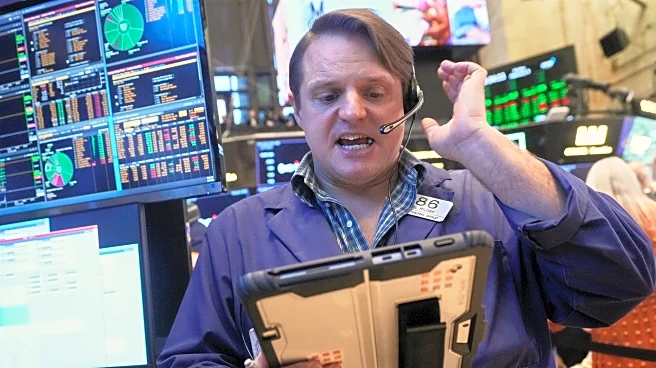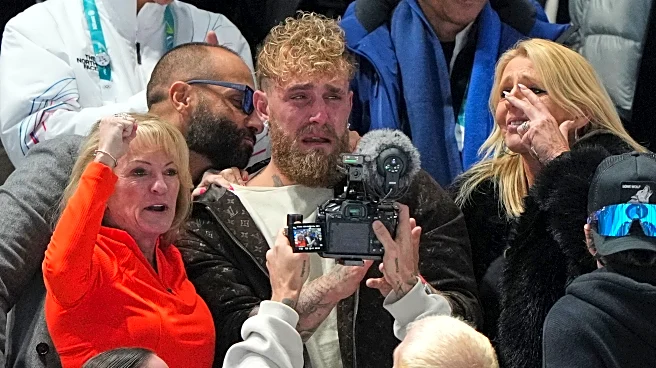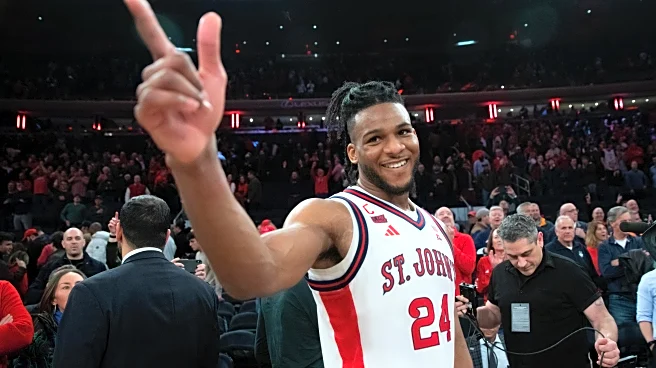What's Happening?
Rio Ferdinand has announced his departure from TNT Sports after a decade of serving as a pundit. Ferdinand, a former Manchester United and England defender, is stepping away to concentrate on his expanding business empire. His decision comes amidst a broader shift in sports broadcasting, with other notable figures like Gary Lineker also leaving traditional media roles. Ferdinand's final appearance will be during the upcoming Champions League final. He has been growing his media company, which includes the successful 'Rio Ferdinand Presents' podcast, boasting 1.3 million YouTube subscribers and a social media following of 30 million. Ferdinand is also exploring property options in Dubai and Abu Dhabi, indicating potential relocation.
Why It's Important?
Ferdinand's departure from TNT Sports highlights a significant trend in sports media where former athletes are increasingly leveraging their personal brands to create independent platforms. This shift challenges traditional broadcasters, as these new ventures often surpass legacy media in reach and revenue. Ferdinand's move reflects the growing importance of personal branding and entrepreneurship among sports figures, potentially influencing how sports content is produced and consumed. The trend could lead to more athletes pursuing business opportunities outside of traditional media roles, impacting the sports broadcasting landscape.
What's Next?
Ferdinand's strategic pivot includes potential relocation to the Middle East and expanding his business interests. His management company, New Era, has partnered with William Morris Endeavor, a Hollywood agency, to explore opportunities in the U.S. This partnership could lead to Ferdinand's involvement in U.S. media projects, both on and off-screen. As traditional broadcasters adapt to changing viewing habits, Ferdinand's move may inspire other sports figures to pursue similar entrepreneurial paths, further transforming the media landscape.
Beyond the Headlines
The shift from traditional media roles to independent platforms raises questions about the future of sports broadcasting. As athletes like Ferdinand build their own media empires, the role of legacy broadcasters may diminish, prompting them to innovate and adapt to new consumer preferences. This evolution could lead to more personalized and diverse sports content, reshaping how audiences engage with sports media.











